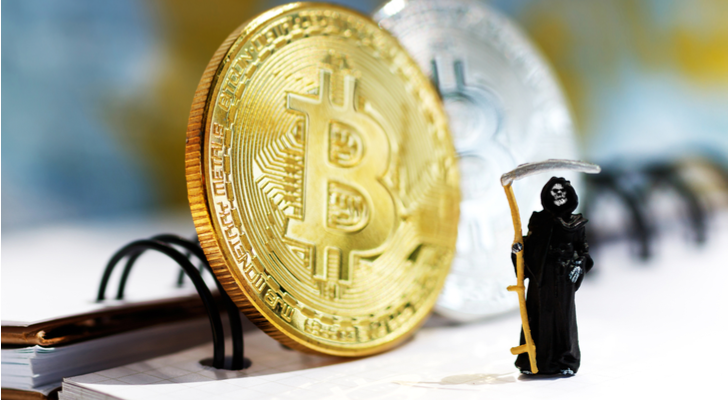Prices for Bitcoin (BTC) and other cryptocurrencies were crashing Jan. 16 after China indicated it would block access to platforms that allow centralized trading, both inside and outside the country.
Bitcoin prices quoted at Coinmarketcap fell over by about 14%, or $1,500, in 24 hours and other coins were down 20% or more in sympathy. Bitcoin was trading at about $12,000 as this was written.
Adding to the bearishness were reports that South Korea, another Bitcoin trading hub, might ban trading. Most of the Bitcoin bubble has been driven by people using Chinese Yuan, the South Korean Won and the Japanese Yen.
The market was also hit by an academic study, published in the Journal of Monetary Economics, showing that a Bitcoin price spike in 2013, from $150 to $1,000 per coin, was likely set off by one or two traders doing fake trades.
The Tide Turns
China’s crackdown on “centralized” trading seems an effort to fight drug dealers, who have centralized money laundering around Bitcoin “mixers,” software tools meant to obscure transaction histories, and gambling sites, according to the Center on Sanctions and Illicit Finance.
The crackdown comes as Russia, North Korea and Venezuela all step up their use of cryptocurrency to get around sanctions. Russia has talked about trading cryptocurrency on official exchanges, Venezuela about launching a cryptocurrency backed by its oil, and North Korea has been reportedly stealing cryptocurrency through state-paid hackers.
In the past, traders shrugged off such concerns, with technical analysts calling for rallies, and there remain bank analysts who believe the price of Bitcoin could still skyrocket this year, as major financial institutions get into the trade and futures trading ramps up. They claim the current action is just “building a base” for future gains.
But the government attack on Bitcoin is increasingly global in scale. If you’re a trader in the U.S., for instance, the IRS wants to know, so it can tax you on your gains. European regulators are talking up a global, coordinated crackdown to fight drugs and terrorism.
Fundamental Problems Piling Up
There remain fundamental problems with Bitcoin that keep it from working as a currency.
As I have written, Bitcoin just doesn’t scale. Because all trades go through a single blockchain, it costs a lot of money to make even simple trades.
Such criticisms have led traders to other coins with different trading structures, like Ethereum and Ripple. But when prices crash, as they’re doing now, they crash everywhere, in “well-structured” currencies and bad. Ripple, which briefly became the second-leading coin by market cap in December before falling back, fell over 20% in 24 hours starting on Jan. 15, and Ethereum was also down.
The same price action has been seen in the past when Bitcoin suffered a crash. So-called “alt-coins” fell even harder than Bitcoin did. If there was a “flight to safety” it was out of cryptocurrency entirely.
The Bottom Line on Bitcoin and Other Cryptocurrencies
Cryptocurrency is not regulated. This was always a feature of the market, but it was always a bug as well.
As I wrote back in August, “where there is no government, thieves rule.” Investors who ignored my warnings, however, have since seen Bitcoin prices rise from $4,700 to their current level.
This is the problem for fundamental analysts, like me, who warn against bubbles. The warnings go unheeded. The bubbles keep running. The analyst is termed a “nervous nelly” with no sense. I went through this same thing with internet stocks in the 1990s and the warnings didn’t save my career when prices crashed in 2000 and 2001.
This bubble is going to end in tears as well. It was always a game for sharks, not tuna. Even if the game continues, it will remain so.
Dana Blankenhorn is a financial and technology journalist. He is the author of a mystery novella involving Bitcoin, The Reluctant Detective Saves the World, available now at the Amazon Kindle store. Write him at danablankenhorn@gmail.com or follow him on Twitter at @danablankenhorn. As of this writing he owned no shares in companies mentioned in this story. To follow the value of cryptocurrencies bookmark https://coinmarketcap.com/

